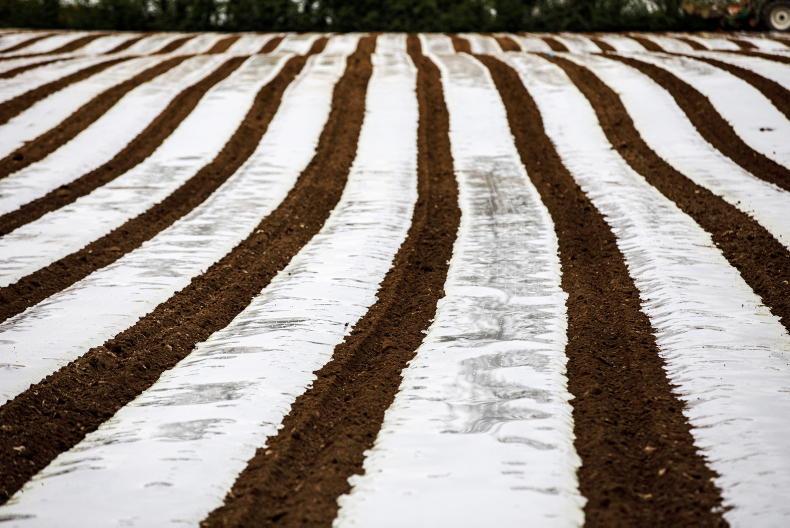The plastic used to cover maize crops in Ireland is to be banned from 1 July, the Irish Farmers Journal can reveal.
Up to 90% of the country’s maize crops are grown under plastic as a means of enhancing growth and maturity in higher-yielding varieties.
Some 14,428ha of maize is grown in Ireland this year, according to the BPS figures released recently.
The plastic used to grow maize in Ireland is an oxo-degradable plastic.
Under the Single Use Plastics Directive, member states must introduce a range of measures to ban such plastics by 3 July from the Irish market, whether they are single-use or not.
Maize growers will face an increased cost from next year
The ban will mean that alternative plastic sources will have to be used if growers are to continue the practice of growing maize under plastic. These are available, but they cost much more and this may challenge the viability of their use.
Maize growers will face an increased cost from next year when planting maize under fully biodegradable plastic, with the alternative plastic sources up to 60-70% more expensive than the products currently in use.
New trials
In anticipation of this decision, which had been under consideration for some time, the Department of Agriculture re-commenced trialling of maize varieties that could be grown in the open without plastic in 2020 – the first such trials since 2015.
DAFM also understands that industry are developing alternative films for use in sowing maize that will comply with this legislation
A Department of Agriculture spokesperson told the Irish Farmers Journal: “DAFM understands that the films currently used to sow covered maize comes under the Single Use Plastic Directive and will not be permitted going forward. The relevant legislation is Directive EU 2019/904, also known as the Single Use Plastic Directive.”
“DAFM also understands that industry are developing alternative films for use in sowing maize that will comply with this legislation.
“Approximately 10% of the maize crop grown in Ireland is currently grown in uncovered systems (without film),” the spokesperson said, adding that the Department of Environment was overseeing the directive.






 This is a subscriber-only article
This is a subscriber-only article










SHARING OPTIONS: